News
I’ll do everything to ensure oil production increases – Tompolo
Dr Government Ekpemupolo, alias Tompolo has pledged to do everything possible to ensure that the daily crude oil production output continued to be on the increase and boost the nation’s revenue.
Tompolo, who is also a High Chief in Ijaw land, made the promise on Saturday evening in Oporoza, headquarters of Gbaramatu kingdom in Warri South-West Local Government Area of Delta.
He spoke shortly after receiving an “Internal Security Meritorious Award” conferred on him by the National body of the Nigeria Union of Journalists (NUJ).
Addressing newsmen, Tompolo acknowledged the pivotal role of the media in promoting peace and stabilising democracy in the country.
“The only place I have to call my country is Nigeria, so I will do everything within my powers, to see that crude oil production increases.
“The critical role of the media in Nigeria cannot be overemphasized. Nothing reasonable can be achieved without the media, so, I want to appeal that they should be appreciated,” Tompolo said.
The Tide source recalls that Tompolo’s Tantita Security Services Nigeria Ltd. (TSSNL), a private pipeline surveillance security outfit was engaged by the Federal Government to curtail crude oil theft in the Niger Delta.
NAN recalls that between January and February 2024,’the private security outfit in conjunction with Federal Government security agencies, impounded MT Kali and MT Harbor Spirit vessels while illegally siphoning crude oil in Bayelsa.
Consequently, two Federal High Courts sitting in Abuja, recently ordered the forfeiture of the heavy Ocean-going liner to the Federal Government.
The courts also ordered the Nigerian National Petroleum Company Ltd. (NNPCL), to sell the stolen crude oil contained in the vessels.
Earlier in his opening remarks, the President of the NUJ, Mr Chris Isiguzo lauded Tompolo’s contributions to internal security, particularly in the Niger Delta region.
He noted that the awardee had substantially helped the country to address the issue of crude oil theft which according to him, had overtime, occupied the national life of Nigerians.
Isiguzo said the issues of insecurity and economic sabotage in the country had been worrisome and of a major concern to Nigerians.
“But today, somebody has risen to the occasion and gathered an array of young men who have taken it upon themselves to help this country to continue to survive as a peaceful and united nation.
“By his commitment, dedication and diligence, Nigeria as a country has to a very large extent, reduced activities of men of the underworld consistently engaged in pilfering and taking our common patrimony for their selfish gains.
“We decided that we must accord the necessary recognition to the man who carries the flag, and birthed this organisation.
“A man who has exceptionally distinguished himself, and has been celebrated by Nigerians across all works of life.
“A general in his own right, who has distinguished himself, ensured and maintained an appreciable level of internal security.
‘We have come to Oporoza to confer on him, the Internal Security Meritorious Award of the NUJ,” he said.
Isiguzo, flanked by the National Secretary of the NUJ, Mr Shuaibu Leman and others said that the media remained the oxygen of democratic governance, noting that “if it collapsed, Nigeria will collapse”.
He said the issue of insecurity was a collective responsibility of Nigerians and not the government alone, urging all hands to be on deck to address the problems.
“In your neighborhood, if you provide intelligence information to security operatives and agencies to help achieve peace and tranquillity, you have made your contribution to solving the insecurity challenges.
“When there is peace in all parts of the country, it will give birth to development and take our country away from being a third world to second or perhaps first world country,” Isiguzo noted.
The Tide source reports that Tompolo also received an award from the Delta Online Publishers Forum.
Highlights of the ceremony was the presentation of awards, parade by the TSSNL personnel and traditional dance by the Ijaw people.
News
Let’s Approach Regional Development Issues Differently – Fubara …As S’South Govs Host Fubara To 50th Birthday Celebration
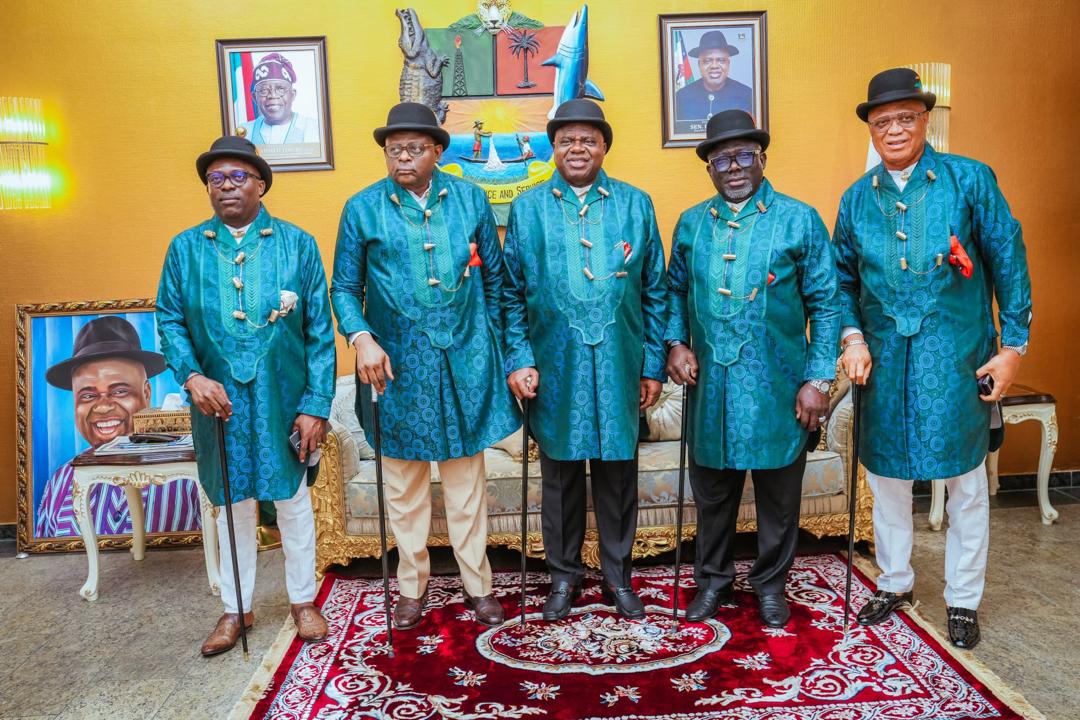
Rivers State Governor, Sir Siminalayi Fubara, has sued for a change in the current approach adopted by South South Governors in their pursuit to achieve holistic regional development and economic prosperity.
The governor insisted on de-emphasis in vested individuals’ political interests while looking at the bigger picture of achieving enduring regional integration that will strengthen unity of purpose to change the trajectory of development in the region.
Fubara made the appeal during the meeting of Governors of South-South States, under the auspices of BRACED Commission, at the Bayelsa State Government House in Yanagoa on Tuesday.
This was contained in a statement by the Chief Press Secretary to the Governor, Nelson Chukwudi.
BRACED is an acronym for Bayelsa, Rivers, Akwa Ibom, Cross River, Edo and Delta.
He said: “I want to appeal that if we have to succeed in this drive, we need to keep our political differences aside and understand that the struggle, as at today, is for posterity, for the development of our region.
“It is really sad that in Niger Delta that is the economic base of this country, the construction of a road that you tagged ‘East-West Road’ could be an issue, that we need to beg, protest, and complain to get it fixed. I don’t think it is proper.”
Governor Fubara stated that it is not that the federal authorities do not understand that Niger Delta needs the road but quickly added that they have seen that even the people of the region do not take themselves seriously.
The governor said the moment Niger Delta people stopped playing to the gallery, and place value on themselves, outsiders will have no option than to accord the region and its people due regard.
Fubara said: “On my part, I want to say this: This is not the first time we are meeting. For me, I followed the course of the region meeting in a forum that we tagged “BRACED Commission.”
“BRACED Commission is also one of the bodies that was constituted at that time to support and work out development strategies for this region. But what I am seeing today is just limiting this meeting to only BRACED COMMISSION.
“We need to widen the scope where other leaders of the region should be part of the discussion of the development of the region, and I think this is the direction that will help the region.”
Reading the Communique of the meeting, the new Chairman of the Forum of Governors of South-South States, and Governor of Bayelsa State, Senator Douye Diri, said they support the Federal Government Tax Reform Bills, and urged President Bola Tinubu to extend the Value Added Tax (VAT) sharing percentages to oil and gas derivation.
He stated the Forum’s request to the Federal Government to urge relevant stakeholders and agencies to extend remediation of polluted environment ongoing in Ogoni land to other impacted communities and States in the region.
Governor Diri also said that the Forum resolved to establish a structural regional security network to enhance safety and security, foster stable Niger Delta region conducive for economic growth and prosperity.
Highlight of the event was the hosting of Governor Fubara to a surprise 50th Birthday celebration by the Governors of South-South States at the Government House in Yenagoa.
News
Fubara Lauds Tinubu For Setting Up Education Load Fund … Vows To Ensure Rivers Benefit Maximally From Scheme

The Rivers State Government has applauded President Ahmed Bola Tinubu for conceiving the idea of setting up the Nigeria Education Loan Fund (NELFUND) which has opened up opportunities for youths to acquire tertiary education irrespective of their financial status.
Rivers State Governor, Sir Siminalayi Fubara, gave the commendation while playing host to a delegation from NELFUND who came on an advocacy visit to the Government House in Port Harcourt on Tuesday.
Represented by his deputy, Prof. Ngozi Nma Odu, Governor Fubara said in developed countries it is common for people to go through school with loans which they sometimes pay all throughout their lives, noting that “for us, it is more accessible and more friendly because you would be required to pay back the loan two years after your National Youth Service.
“It is a win-win situation; it is a situation where the youths in Nigeria should not say because my parents are poor or passed away I cannot improve on my educational growth. This offers them a golden opportunity and I am glad you came for this advocacy.”
The governor urged NELFUND to intensify its advocacy to let the people know how they can benefit from it, adding that it is more important when talking about vocational institutions.
“If you look at the developed countries it is people that went to the vocational schools that make so much money, because it is pricey to get somebody to do anything, we need to instil this into our people, our youths, because people sometimes tend to look down on people that went to vocational schools, it should not be,” he said.
Fubara expressed delight with the NELFUND programme and assured that the State Government would do whatever it can to ensure Rivers State benefits maximally from the scheme.
In his remarks, the Managing Director and Chief Executive of NELFUND, Dr. Akintunde Sawyer, informed the governor that they were in Rivers State to seek the support of the State Government towards the loan, stressing that President Tinubu has directed them to ensure no Nigerian student who has the ability and desire to get educated at tertiary level is denied the opportunity due to lack of funding.
He explained that the scheme provides interest-free loans to students who apply, adding that these loans are not repayable until two years after their Youth Service when they must have gotten a job.
News
UK Appoints British-Nigerian As Trade Envoy To Nigeria
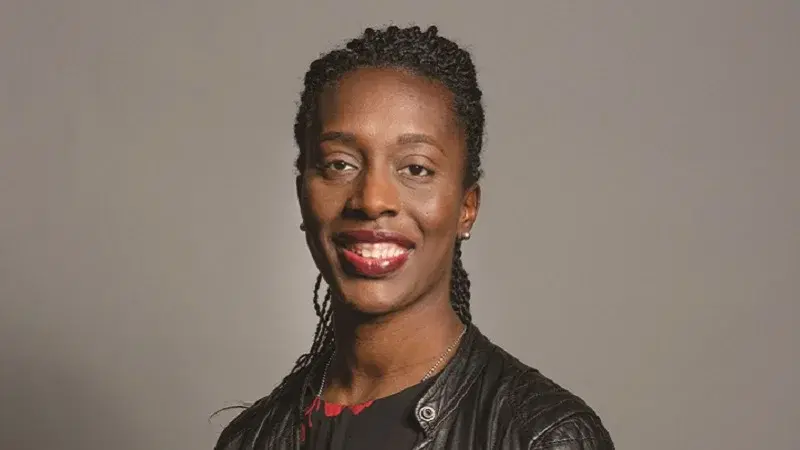
A British-Nigerian politician, Florence Eshalomi, has been appointed as the United Kingdom’s trade envoy to Nigeria.
Her appointment makes Eshalomi the second Nigerian to hold the position.
Confirming her appointment on X on Tuesday, she wrote: “It is an honour to have been appointed as the United Kingdom’s Trade Envoy to Nigeria.
“I’m looking forward to building on my close ties with Nigeria to promote a strong and flourishing economic relationship between our two great nations.
“I am looking forward to strengthening the UK’s relationship with Nigeria to explore shared growth and opportunities for both countries.”
Announcing the appointment in a statement on Tuesday, Jonathan Reynolds, the UK’s Business and Trade Secretary, said the decision was aimed at attracting investment into the UK and boosting economic growth.
“I’ve launched a new team of trade envoys who will use their experience, expertise, and knowledge to unlock new markets around the world for British businesses, attract investment into the UK, and ultimately drive economic growth,” Reynolds said.
Eshalomi, 44, is an MP representing the Vauxhall and Camberwell Green constituency.
She holds a Bachelor of Arts (Hons) in Political and International Studies with Law from Middlesex University.
-
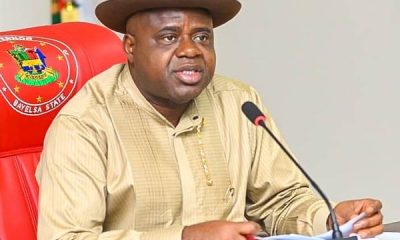
 News4 days ago
News4 days agoBayelsa Confirms Cholera Outbreak
-
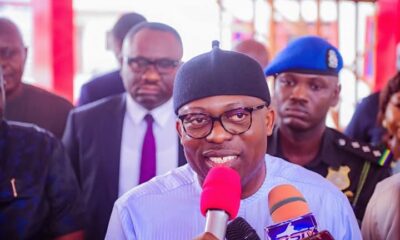
 Featured3 days ago
Featured3 days agoRSG Rolls Out Healthcare Programmes To Mark Fubara’s Birthday
-
Opinion1 day ago
Fubara @ 50: Golden Sparkles And Magic Bullet
-
Business4 days ago
ARCON Faults Unethical Ads On Meta-Owned Platforms … Vows Sanction Against Perpetrators
-
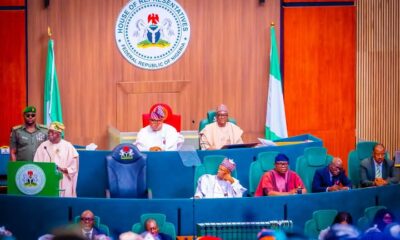
 Featured1 day ago
Featured1 day agoTinubu Seeks Multifaceted Response To Terrorism, Other Security Threats
-
Nation1 day ago
N4bn Seized Assets, Arrest Of Kano Anti-Corruption Chair, Magaji, Raise Fresh Dust
-
Business3 days ago
NNPC Plans Mini NLNG Projects For Outside Pipeline Network Customers
-
Politics1 day ago
Celebrate Patriotic Citizens, Not Corrupt Politicians, Babalola Tells FG, States

